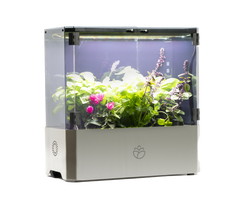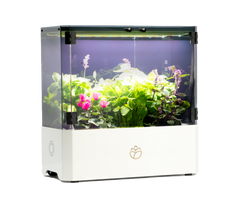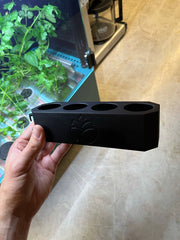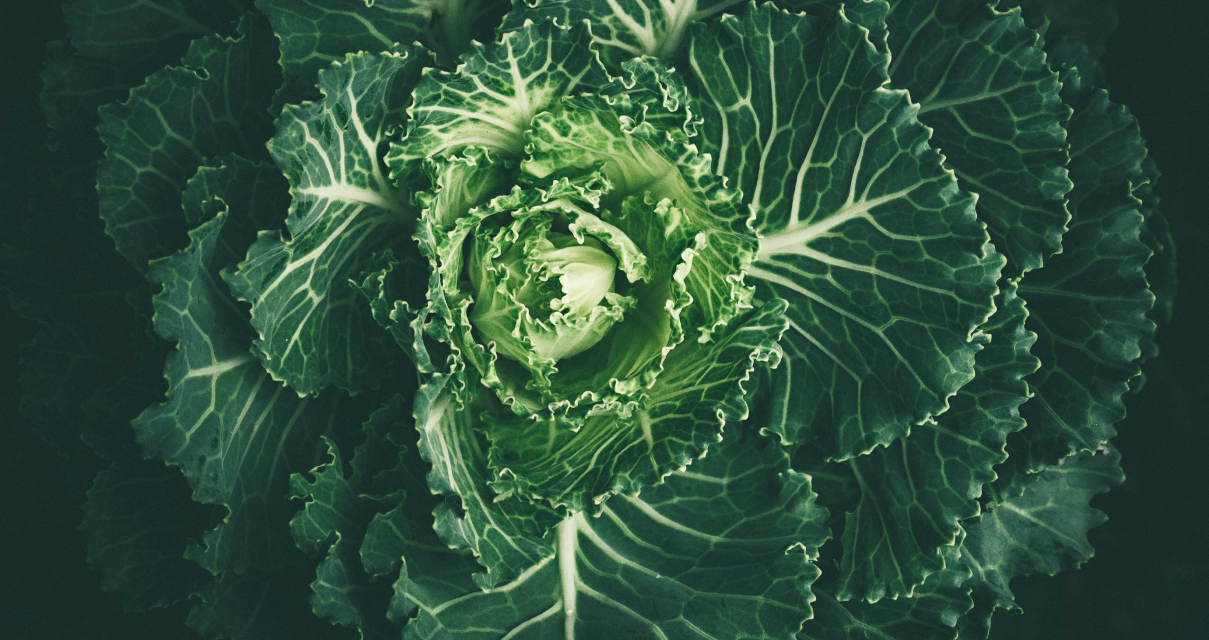In recent years, hydroponic gardening has gained popularity as a sustainable and efficient way to grow food. Hydroponic systems use a closed-loop system of water, nutrients, and light to grow plants, eliminating the need for soil. This innovative method of food production offers numerous benefits over traditional soil-based agriculture, including the conservation of water, reduction in the use of pesticides, lower carbon footprint, and efficient use of land. Additionally, hydroponic gardening allows for year-round food production, regardless of climate and season, and can produce higher yields per unit of land compared to traditional soil-based agriculture. With its many advantages, hydroponic gardening is becoming an increasingly popular way for individuals, small-scale farmers, and urban growers to produce fresh, healthy, and tasty food.
Saves water
Growing plants hydroponically allows for more efficient use of water compared to traditional soil-based agriculture for several reasons:
-
Recycling: Hydroponic systems are designed to recycle water, reducing the amount of water used. Excess water and nutrient solutions can be collected and reused, reducing waste.
-
Precise water delivery: Hydroponic systems deliver water and nutrients directly to the roots of the plants, reducing evaporation and runoff compared to soil-based agriculture. This leads to more efficient use of water.
-
No soil absorption: Soil can absorb and retain large amounts of water, reducing the amount available to the plants. In hydroponic systems, water and nutrients are delivered directly to the roots, reducing the amount of water lost through soil absorption.
-
Better control: Hydroponic systems allow for precise control of water and nutrient delivery, reducing the risk of over-watering or under-watering. This leads to more efficient use of water and a lower risk of water waste.
Overall, the closed-loop nature of hydroponic systems, combined with precise water delivery and control, allows for more efficient use of water compared to traditional soil-based agriculture. This can lead to significant water savings and help to conserve precious water resources.
Reduces pesticides
-
Controlled environment: Hydroponic systems are grown in a controlled environment, which can reduce the risk of pest and disease outbreaks. This, in turn, reduces the need for pesticides and herbicides.
-
No soil-borne pests: Soil-borne pests, such as nematodes and soil-borne diseases, are less likely to affect hydroponically grown plants. This reduces the need for pesticides and herbicides used to control these pests.
-
Easier monitoring: In hydroponic systems, plants are grown in a compact environment, making it easier to monitor for pests and diseases. Early detection and treatment can reduce the need for large-scale pesticide applications.
-
Better water quality: Hydroponic systems use clean, pH-balanced water, reducing the risk of disease and pests that can be introduced through contaminated water sources.
Overall, the controlled environment and lack of soil-borne pests in hydroponic systems reduce the need for pesticides and herbicides. This can help to reduce contamination of the environment and improve the quality of the produce.
Reduces land use
Growing plants hydroponically can reduce land use for several reasons:
-
Vertical growing: Hydroponic systems can be designed to grow plants vertically, reducing the amount of land required to grow crops. This can be particularly useful in urban areas where space is limited.
-
Space-saving design: Hydroponic systems can be designed to maximize space usage, reducing the amount of land required to grow crops. This can make hydroponic gardening an attractive option for small-scale farmers and home gardeners.
-
Indoor growing: Hydroponic systems can be set up indoors, allowing for year-round food production in areas with limited growing seasons or harsh climates. This reduces the need for large amounts of land for agriculture.
-
More efficient use of land: Hydroponic systems can produce a higher yield per unit of land compared to traditional soil-based agriculture. This allows for more efficient use of land and can help to conserve natural habitats and reduce the pressure on farmland.
Overall, the space-saving design and ability to grow crops indoors make hydroponic gardening a more land-efficient way to grow food compared to traditional soil-based agriculture. This can help to reduce the pressure on limited land resources and conserve natural habitats.
Lower carbon footprint
Growing plants hydroponically can have a lower carbon footprint compared to traditional soil-based agriculture for several reasons:
-
Reduced transportation: Hydroponic systems can be set up in urban areas, reducing the need for long-distance transportation of food and associated carbon emissions.
-
No tillage: Hydroponic systems do not require tillage, reducing the use of heavy machinery and associated carbon emissions.
-
Energy-efficient lighting: Hydroponic systems can be designed to use energy-efficient LED lights, reducing energy consumption and associated carbon emissions.
-
Renewable energy sources: Hydroponic systems can be powered by renewable energy sources, such as solar or wind power, reducing carbon emissions associated with energy generation.
-
Carbon sequestration: Plants absorb carbon dioxide from the atmosphere and store it as carbon in their tissues. Hydroponic systems can promote efficient plant growth and increase carbon sequestration, reducing atmospheric carbon dioxide levels.
Overall, the reduced transportation, lack of tillage, energy-efficient lighting, and use of renewable energy sources in hydroponic systems can help to reduce the carbon footprint compared to traditional soil-based agriculture. Additionally, the promotion of efficient plant growth and increased carbon sequestration can help to mitigate the effects of climate change.
Get started with growing hydroponically
Growing plants hydroponically offers numerous benefits that make it a sustainable, cost-effective, and environmentally friendly way to grow food. Are you interested but not sure how to start? Plaant units make growing plants hydroponically as easy ever! Get to know Plaant here.













